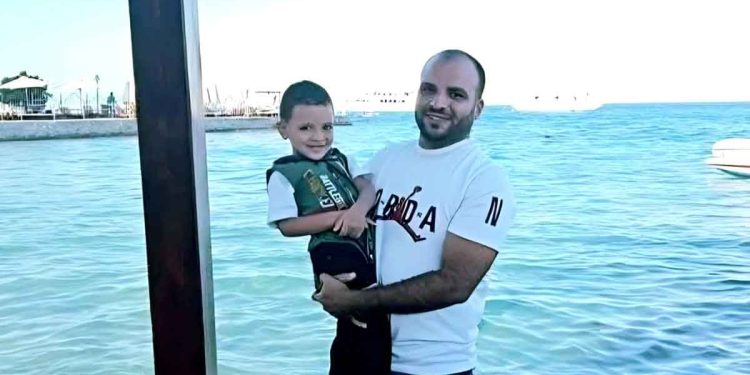Young man Hazem Fathi died in detention inside Nag Hammadi Police Station in Qena Governorate after five months in pre-trial detention, following accusations of assaulting the head of Abu Tisht Police Centre, retired Major General Mohamed El-Moqleb, and attempting to kill his son, former officer Ahmed El-Moqleb.
The case began in March this year, when Fathi was arrested after a dispute with a police officer in a grocery store in Qena. The officer accused him of assault, leading prosecutors to issue a 15-day pre-trial detention order, which was repeatedly renewed.
According to local accounts, Fathi was known for his good reputation among the residents of Nag Hammadi. He owned a small grocery shop, and one witness reported that his death inside detention was for “unknown reasons,” but that he had faced accusations of attempting to kill a police officer who threatened him, “amid strong suspicions that he was killed under torture.”
Video clips circulated online showed details of the incident, including footage of the officer assaulting Fathi inside his shop after he objected to food prices. In the videos, the officer can be seen beating him repeatedly, while Fathi resisted. Witnesses said he was then arrested violently, dragged to a police vehicle, and later appeared in footage with visible signs of torture.
The Egyptian Ministry of Interior later claimed that the officer had intervened in a pricing dispute without revealing his identity. Reports also indicated that the officer comes from an influential family with strong security connections in Upper Egypt.
Fathi’s death brings the issue of violations inside Egyptian detention centres back into focus. Pre-trial detention continues to be used as a punitive tool without fair trial guarantees, often extended for long periods, leaving detainees vulnerable to death from medical neglect or harsh detention conditions.
The incident also reflects the excessive use of force by police officers, particularly in rural and Upper Egypt areas, in the absence of effective oversight. The officer involved reportedly enjoys protection due to his family’s influence, raising concerns about impunity and the exploitation of power to violate citizens’ rights.
This case adds to a long list of deaths in Egyptian prisons and detention facilities in recent years, highlighting the urgent need for independent oversight, effective monitoring mechanisms, and an end to torture, cruel treatment, and medical neglect, in line with Egypt’s obligations under international human rights law.



























